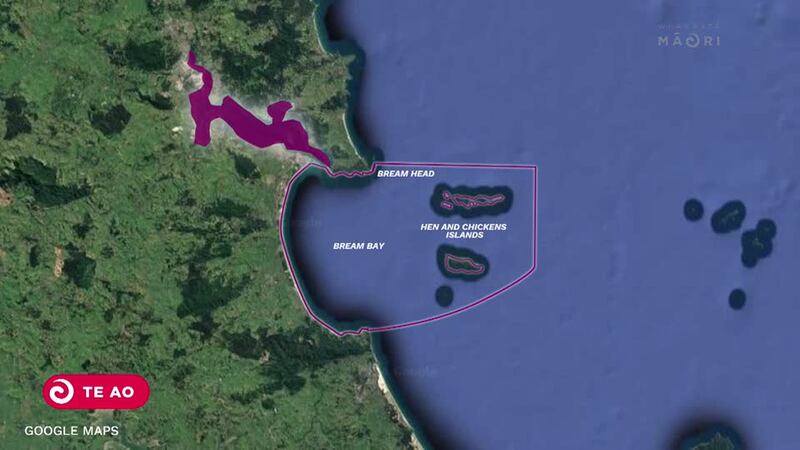Groups interested in the Whangārei coastline have had their evidence heard in the Whangārei High Court as part of the second phase of the Marine and Coastal Act applications.
These groups include 16 iwi and hapū from Whangārei, as well as fishing and recreational groups who have an interest in access to the area.
Rock lobster fisherman Daryl Sykes says the expression in customary fishing rights can directly impact on the exercise of commercial fishing rights, ”and I think the industry works very hard with customary interests to avoid those circumstances”.
From a rock lobster industry point of view, he says, “The idea is the fisheries come first, and from then, all benefits flow. So if we start from that position, we try and make sure that all interested parties are working towards the same outcome.”
Another witness who gave evidence, an expert in conservation says, “What we are trying to achieve is to preserve that type of amenity at Langs Beach for the community and at the public at large. So very much trying to preserve these activities for everyone.”
Fight for customary rights continues for Ngātiwai
Ngātiwai is one of 16 iwi and hapū groups seeking a customary marine title (CMT) for rights across Whangārei Harbour and the Whangārei Coast area.
Ngātiwai board chairman Aperahama Edwards told Te Ao Māori News, “Ko te papa tai moana ko te moana tae atu ki nga moutere he whenua whakahirahira ki a Ngāti Wai katoa, Ngātiwai whānui tae atu ki ngā hapū huri ki te takiwā o Whangārei Terenga Paraoa.”
“From coastal lands to the sea, out to the islands, are all significant areas to Ngātiwai, and the wider Ngātiwai tribe as well as the subtribes of the area of Whangārei Terenga Paraoa.”

A group of elders from Te Parawhau were at the hearings on Wednesday with many waiting 40 to 50 years to get CMT recognition for their hapū.
Heeni Tuhiwai McGrath who has been at each Marine and Coastal Area hearing since it started in February says, “Well, I am coming up to 80 (years of age) and I’ve been fighting for our rights”.
Te Parawhau is one of the dominant Whangārei hapū that sits between Ngāpuhi from the North and Ngāti Whātua from the south.
A spokesperson for the hapū, Forrester Hilton, says, “So when they steal all your land, you can no longer claim it, so now it’s just another moving of the goalpost”.
That goalpost is the Marine and Coastal Area bill about to change under this coalition government. Treaty Minister Paul Goldsmith confirmed last week the exact percentage awarded for customary title was still to be determined.
This came off the back of the Urgent Inquiry Stage One Report (Marine and Coastal Area Act 2011) in which the Waitangi Tribunal found the Treaty had been breached several times by the Crown.
Questioned in Parliament on Wednesday, Goldsmith said: “All New Zealanders have interest in what goes on in the Marine and Coast Area space and those are substantially taken away from the customary marine title and so there was always going to be a high threshold and that is what the legislation covered.”
The hearings for the week’s second phase of the Marine and Coastal Area are due to finish on Thursday.
The 16 groups, include Ngātiwai, Patuharakeke, Te Parawhau, Ngāpuhi, Ngāti Whātua, Ngāti Pūkenga, Te Wairāriki, Ngāti Kororā and Ngāti Takapari, along with many smaller whānau groups.



